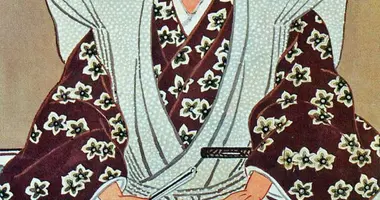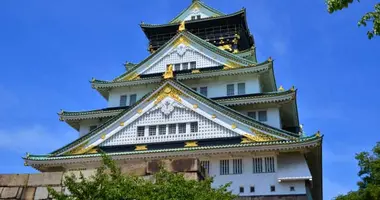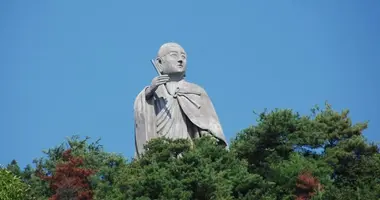Honda Tadakatsu: The Unscathed Samurai General of the Tokugawa

Honda Tadakatsu was one of the most celebrated and powerful generals who served Tokugawa Ieyasu. Known by the honorary title of "Tokugawa Four Heavenly Kings" along with Ii Naomasa, Sakakibara Yasumasa, and Sakai Tadatsugu, he was famed for participating in over 50 battles in his lifetime while never suffering a significant injury, earning him the moniker "The Warrior who surpassed Death itself".
Early life and military beginnings under the Tokugawa
Born in 1548 in Aichi Prefecture, Tadakatsu was the eldest son of Honda Tadahira. Despite losing his father and grandfather at a young age, he began serving Tokugawa Ieyasu from childhood, first as a page and then rising to become one of his top generals.
Tadakatsu's first battle was at the young age of 13 in 1560. By age 15, he had already taken the head of an enemy general in single combat, proving his valor and skill. In 1564, at just 19 years old, Ieyasu promoted Tadakatsu to lead a unit of 54 cavalry, solidifying his position as one of the top Tokugawa commanders.
Key military exploits and battles
Tadakatsu played crucial roles in many of the pivotal battles of the Sengoku period. In the Battle of Anegawa (1570) against the Azai and Asakura clans, he commanded 2,000 troops and engaged in a daring single combat with a giant Asakura warrior, helping secure victory for the Tokugawa-Oda alliance.
He further proved his mettle fighting the powerful Takeda clan at the battles of Mikatagahara (1572) and Nagashino (1575). At Mikatagahara, Tadakatsu's rear guard defense allowed Ieyasu to retreat to safety. Then at Nagashino, he led a key unit of musketeers to decimate the Takeda cavalry with volley fire.
Tadakatsu's finest moment came at the Battle of Komaki and Nagakute (1584). Left to defend Komaki Castle while Ieyasu engaged the Toyotomi army, Tadakatsu audaciously rode out to challenge Hideyoshi's much larger force. Impressed by this brazen show of courage, Hideyoshi ordered his men to spare Tadakatsu, allowing Ieyasu time to regroup.
Tadakatsu's legendary weapons and armor
Tadakatsu wielded the famous spear Tonbo-giri ("Dragonfly Cutter"), one of the "Three Great Spears of Japan". Legend held the spear was so sharp that a dragonfly landing on the edge would be sliced in two. The spear shaft measured over 3 meters, while the blade was 43.5 cm.
Equally iconic was his unique deer horn helmet, said to be modeled after a deer he saw crossing a river to guide him to safety after a battle. The helmet made him an instantly recognizable figure on the battlefield.
Clad in his signature black laced armor, Tadakatsu was able to remain mobile and agile in combat despite the protection. He tailored his armor as his experience grew, making it progressively lighter and more maneuverablewhile still providing ample defense.

Respect and praise from friend and foe
Oda Nobunaga lauded Tadakatsu as a "samurai among samurai" and the "best of the Tokugawa clan". His bravery at the Battle of Anegawa in rushing the Asakura forces alone prompted Nobunaga to call him the "Japanese Zhang Fei".
Toyotomi Hideyoshi considered Tadakatsu and Tachibana Muneshige to be the best samurai of the east and west respectively. After witnessing his courage at Komaki-Nagakute, Hideyoshi praised Tadakatsu as "Japan's Number One Warrior".
Even the Takeda clan, rivals of the Tokugawa, recognized Tadakatsu's skill and loyalty. Takeda Shingen reportedly said "Ieyasu has only two things that exceed his own worth: his unique helmet and Honda Tadakatsu." The Takeda samurai admired his valor, nicknaming him "Tokugawa's wild hare" for his speed.
Retirement years and legacy
As peace settled over Japan in the early 1600s, Tadakatsu became increasingly distanced from national politics. He retired to Kuwana domain, which had been granted to him after Sekigahara, passing leadership of the Honda clan to his son Tadatomo in 1609.
Tadakatsu passed away in December 1610 at age 62. True to his legend, he had never once suffered a significant wound in battle. He remains revered as the mightiest of Tokugawa Ieyasu's retainers, a true samurai who embodied bravery and loyalty. Through his descendants, including grandson Tadatoki who married Ieyasu's granddaughter, Tadakatsu's legacy as the unscathed warrior continues to inspire to this day.









